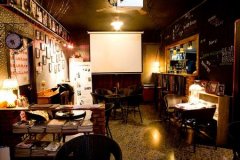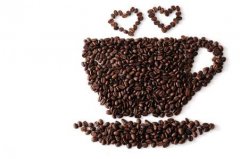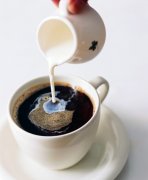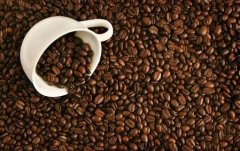Coffee Culture Lists
-
Dirkley stole coffee seedlings and finally cultivated them successfully.

In ○, Deckley, a naval officer who returned to Paris on holiday from the French dependent island of Martinique, learned that the French coffee transplant industry was on the rocks. Based on his strong patriotism and his understanding of the soil and water of Martinique, he decided to volunteer to transplant the descendants of the Java coffee mother tree donated by the Netherlands to the dependency of Central and South America to expand the French coffee cultivation industry, so that the coffee market will not continue to be subject to the Ottoman Empire and the Netherlands.
2015-04-02 Klee Coffee Miao Hui Dharma end cultivation success 17 France dependent Martin -
France encounters bottleneck in developing coffee industry

French King Louis XIV (1638-1715) once tried coffee. Although he was insensitive to the bitter taste, he did not ignore the huge potential business opportunities of coffee. After all, the court alone spent 110000 yuan a year to buy coffee to solve the princess's coffee addiction. Coffee was the most valuable agricultural product at that time, so Louis XIV was eager to share in the global coffee industry. Seventeen ⊙ eight years, France imitates the Netherlands
2015-04-02 France Development Coffee Industry encounter bottleneck King of France Louis XIV 1638 -
Napoleon bean grinder and private coffee

Napoleon, a prominent French politician and strategist, also had a life-and-death relationship with coffee. Before the Paris Revolution, Napoleon fell in love with coffee when he was still a young artillery officer. He had to use a military cap as collateral to pay his debts after drinking coffee in Pucco. He is an out-and-out coffee fanatic. He has a good idea of coffee. He likes to grind his own beans, how much he drinks and how much he drinks.
2015-04-02 Napoleon bean grinder private house coffee France excellence politician strategist Nathan -
Coffee is the Catalyst of the French Revolution Coffee Culture basic knowledge

Marla and Danton, the leaders of Paris during the gestation period, often discuss big plans in Pukou. In 1789, before the uprising, the revolutionaries delivered an impassioned speech at the Cafe Foy (which opened in 1749 and was also a gathering place for revolutionaries), drank several cups of coffee to boost morale, and captured the Bastille. Jules, a 19th century French historian? Mishley is the coffee.
2015-04-02 Coffee French Revolution Catalyst Coffee Culture Basics Common sense Paris Grass -
The enlightened trend of thought was brought back to the United States from the French Cafe Pucco.

The Encyclopedia: a Dictionary of Science, Art and Technology, published from 1751 to 1780, contains 35 volumes, including 71818 articles and 3129 pictures. Voltaire, Diderot, Rousseau and Montesquieu are all among the editors. They regard the Encyclopedia as a tool to openly provide common sense, secretly destroy superstition, and completely pour out the ideas of the Enlightenment.
2015-04-02 Enlightened ideological trend France Pucco Cafe bring back USA -
Common sense of Coffee Culture Cafe Cafe leads French Fashion trend

Paris always lacked high-end cafes leading the fashion trend, until in 1686, Francesco Procopo dei Co1te11i, an Italian Frenchman, opened the first Paris cafe (Ca Procope, later renamed Le Procope), which aimed at intellectuals and people in literary and art circles, near the French opera house in the bustling area.
2015-04-02 Coffee culture common sense Pucco cafe leader France fashion Paris -
Coffee Culture Common sense French Coffee Culture is deeply influenced by Italy

Southern French cuisine is deeply influenced by Italy, coffee fever from Italy to southern French cities, gradually heating up, before reaching the fashion capital Paris. Marseilles and Lyon in the south of France have long been exposed to coffee, and all the coffee brought in by businessmen is for private use, which is not popular among the people. The coffee craze among merchants in southern France is about 30 years later than that of Venice merchants. "heading for Yemen.
2015-04-02 Coffee culture common sense France deeply Italy influence south food beauty -
American Coffee History: from Cowboy Coffee to Fine Coffee

After the 19th century, coffee became an important imported commodity in the United States, and hoarding was heard of from time to time. At that time, although there was a large consumption of coffee in the United States, it did not attach importance to the quality of coffee. As long as there was caffeine, it was ridiculed as cowboycoffee. The western cowboy just needs to make a fire in the field, boil the water in the pot, add the coffee powder, bring it to a boil, remove the coffee pot, and wait for a few minutes until the coffee grounds sink.
2015-04-02 American coffee history cowboy boutique 19th century became heavy -
Coffee is the inspiration for Beethoven, a German musician.

Coffee is also a source of inspiration for European musicians. German musician Beethoven's three favorite diets were macaroni, cheese and espresso. It is said that he likes to brew coffee by himself and insists on using a few coffee beans for each cup of coffee, 60 beans, no more or less. But 60 beans, weighing about 9 grams (heavy baked beans about 85 grams, light baked about 10 grams), with the normal 150 ml to brew
2015-04-02 coffee culture common sense coffee Germany musician Beethoven composition inspiration source -
Interesting German statement on banning Coffee

Frederick the Great of Germany issued a declaration banning coffee in 1777, which made it clear that he was partial to beer. This statement is interesting and worth reading: it breaks my heart to learn that our people's coffee consumption is increasing and our country's money is flowing out. Excessive soaking in coffee all over the world must be strictly prohibited and corrected. Beer is our nation's drink, and our people must not give it up. I, my ancestors and the officials of the whole country all drank.
2015-04-02 Interesting Germany ban coffee declaration Frederick the Great 77 7 years -
Coffee was introduced into Germany in 1670

Although German botanist Raul Wolf discussed coffee in the Middle East in his travels published in 1582, he was the first European writer to publish a book on coffee, but coffee did not spread to Germany until 1670, decades later than Italy, Britain, and France. In 1679, an Englishman opened Germany's first coffee shop in Hamburg, lighting a fire, Leipzig and Stu.
2015-04-02 Six or seven coffee spread Germany though botanist Raul Wolf two -
The quality of St. Helena coffee goes up and down.

The St. Helena coffee variety belongs to the Yemeni round bourbon, commonly known as the green-topped bourbon, not the pointed bourbon of the variety, nor the Tibica of Yemen. The quality of St. Helena coffee is unstable and fluctuates greatly every year. St. Helena in a good year has obvious citrus aroma and good sweetness, similar to Ethiopia's Yirgacheffe, but with low acidity, which may be related to planting altitude.
2015-04-02 Saint Herr Lena Coffee quality ups and downs Variety belong to -
St. Helena Coffee is famous.

Historical records show that Napoleon had an affection for coffee trees, planted several coffee seedlings near the villa Longwood, and even wanted to harvest coffee fruit one day. However, due to the steep terrain and the strong wind and rain, the saplings died in a few months, which seemed to be an ominous sign for him. Napoleon was also picky about the water he used to drink coffee. He personally surveyed the springs on the island and pointed out the wisdom of using beautiful scenery.
2015-04-02 Saint Herr Lena coffee fame big noise historical materials records Napoleon affection -
Napoleon was imprisoned on an English isolated island to spread coffee stories.

After the British East India Company planted mocha coffee seeds on St. Helena in 1732, no one tracked it until it was first reported that coffee trees were found on the island in 1814. Although the island is a British dependency, there have been frequent mutiny over the past hundred years. Britain put Napoleon under house arrest on an isolated island, and the advantage is that it is not easy for external forces to come to the rescue, but there is no small risk-- the biography of the mutiny on St. Helena
2015-04-02 Napoleon imprisoned England isolated Island Coffee Story 17 2002 East India -
Careless cultivation of St. Helena Coffee in Britain

-○ May 21, 2000, when the battleship of Portuguese Captain Joao da Nova was returning northward from the Cape of good Hope and crossing the vast expanse of the South Atlantic Ocean, a sudden warning came from the sentinel that he had found land. Nova ordered to sail to this unknown island that had never been found to find out. The island is surrounded by cliffs, providing the best natural insurance for protecting the island, and there is only one place on the island.
2015-04-02 England inadvertently planting willow nurturing Saint Hercules Lena coffee -
Napoleon and St. Helena Coffee

France outstanding military home Napoleon can be called the most romantic, sad character in the history of coffee, his brandy private coffee, portable cylindrical Turkish grinder, are all good talk. Although he was a mid-18th century to early 19th century figure, but God as early as the early 16th century began to find him the most romantic, sad ancient land-St. Helena Island. (425 square meters)
2015-04-02 Napoleon Saint Helena Lena coffee -
The Origin of Green Top Bourbon in St. Helena, England

Britain made every effort to develop the tea cultivation industry in India, but seeing the coffee industry in the Netherlands and France booming, the British East India Company also shipped a batch of mocha coffee seeds (round bourbon) from Yemen. It was planted on the island of St. Helena in the South Atlantic Ocean on the west coast of Africa in 1732. Although the British did not cultivate it wholeheartedly and let it fend for itself, it actually survived in a harsh environment.
2015-04-02 United Kingdom Saint Herr Lena Green Top Bourbon Origin all-out Development India -
The common sense of coffee culture the London Stock Exchange evolved from cafes

In 1688, Edward Lloyds opened for business on Tower Street Street on the banks of the Thames, and soon became a place for sailors, merchants, and shipowners to exchange business information. Lloyd pushed the boat along the river to provide a schedule for cargo ships to enter and leave the port, attracting more businessmen who buy and sell marine insurance to get together and trade. In 1691, the cafe ran out of space and moved to rumba
2015-04-02 Coffee culture common sense London the stock exchange is evolved from cafes. -
Cafes are the birthplace of British enterprise

Early English cafes had a social function of teaching and learning, and for a penny you could sit in to listen to famous lectures or read books, and pay two pennies for a cup of coffee or tea. Coffee houses are also known as penny universities because of their increased interpersonal interaction and learning effects. Political issues-always the focus of debate, the two sides are deadlocked and then violent also happen. Mayer
2015-04-02 cafe UK business birthplace early have teaching -
An important case of victory in the struggle for freedom of speech in cafes in the history of mankind

In 1675, the London pub, unwilling to be robbed of business by the cafe, also launched a counterattack, placing advertisements attacking the unknown composition of coffee, as black as sour water, charred as charcoal, smelling like broken shoes, and doing its best to vilify. The British brewing industry went from behind the scenes to the front of the curtain to protest against coffee business, issuing a statement entitled "Malt Liquor's wife sues the Cafe". As early as 1672, the king of England
2015-04-02 Mankind in history strives for cafes freedom of speech finally wins victories important cases
